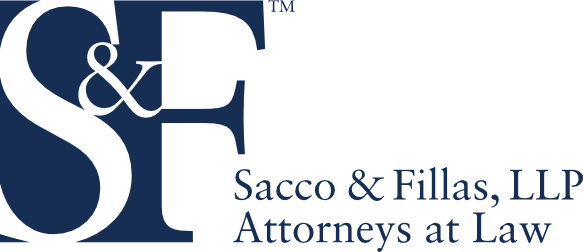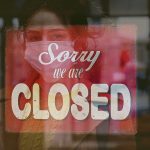By Alexander Lee
With work-from-home and dining-out restrictions constantly changing during these turbulent times, it can be hard to keep track of what is and is not currently allowed. We spoke to lawyers Elias Fillas and Luigi Brandimarte of Astoria’s own Sacco & Fillas LLP to get the lowdown on how best to navigate NYC’s coronavirus regulations in 2021.
GMA: If your employer orders you to return to the office, but you feel unsafe doing so, are there any legal actions you can take in order to continue working from home?
LB: Under New York law, you cannot fire or discharge an employee for COVID-19-related reasons. So, what we do is address every case on a case-by-case basis. For example, if someone has these fears, or they have high risks, we ask them to substantiate, and then we’ll make an accommodation for that. That’s how we have our policy—there’s no requirement that an employer has to give an employee remote work.
GMA: If you contract coronavirus from a co-worker, is anyone liable for that?
EF: There’s no way to really tell where you get it from. That being said, there are rules in place that essentially say how you’re supposed to conduct yourself in an office—having face shields in the conference rooms, things like that. And if you don’t do that, then you can get a violation. But in terms of somebody getting coronavirus, they can’t tell how they get it, so because of that, you can’t impugn any liability on the owners of businesses for that.
GMA: If you get injured while working from home, are you still eligible for workers’ comp for that injury?
EF: Yes. During the course of your employment? Yes.
LB: And then you can sue your landlord, because what if you got injured because of the landlord’s negligence?
GMA: If a restaurant is busted for having indoor dining, do the customers who are participating face any sort of repercussions?
EF: Yes, there is an order that no one should be dining indoors. So, theoretically, those customers are also breaking the law, and they could be subject to civil penalties, fines and even getting arrested. There was an instance in Astoria several weeks ago where there was a gathering of 75 people in a club, and those people got arrested.
GMA: If you’re going to be working from home, especially if you’re running a business from home, do you need to inform your landlord?
LB: You really should not be operating a business out of a residential unit—I mean, that’s what it is. But all who have been working remotely have been doing that over the last nine months.
EF: I think it depends on the nature of the business. If you’re an attorney, and you’re working from home, a landlord doesn’t really have grounds to say that the tenant is doing wrong unless you’re seeing clients coming in and out of the apartment. But if you’re baking cakes, and all of a sudden you install a commercial oven in your apartment, now you’re using a residential apartment for commercial purposes. It’s all about reasonableness, and how you’re using the apartment.
GMA: If a restaurant was to demolish its entire front wall, would that qualify as outdoor dining under the current restrictions?
EF: No. There’s been a lot of talk about why you can have an enclosed outdoor space versus indoor space. The reason behind the laws that were enacted was because, when you’re indoors and have a ventilation system that circulates the air, that increases the likelihood of transmitting the disease. In an outdoor space, you don’t have any HVAC systems; people are outdoors and they distance six feet apart.
GMA: Do you think it’s possible that restrictions surrounding dining outdoors and carrying out alcohol will continue to be relaxed after the pandemic?
EF: I think that the city, in their infinite wisdom, should allow for a lot of these changes to continue to allow the businesses to recover. The outdoor spaces in the summer time should definitely be allowed. Having all this expanded sidewalk and street seating should continue to be allowed in the city, so that this way businesses have more seating capacity. I don’t know if the alcohol component, allowing people to take alcohol outside, is going to be allowed. But they should have some leniency towards some of these things that were allowed to take place over the last nine months.
GMA: Would it be legal for employers to install cameras in their employees’ homes so they can observe them working and ensure that they’re being productive?
LB: With consent, it doesn’t matter if it’s legal or not. But whether an employer can require it, I think the employee has every right to object to that as a violation of privacy. But maybe there’s confidential, secret matters that need to be monitored while the employee is working.
EF: It all depends on what’s reasonable. If the job description reasonably warrants something like that, then I would say that the employer can mandate it. If, however, it is an unreasonable condition to that person continuing with their employment, then obviously that’s something that can be contested.
GMA: It’s 4pm, your workday’s winding down, and you have a glass of wine. Can your employer punish you for that if you’re working from home?
EF: If your hours are nine to five, and you’re still on the clock at four, you shouldn’t be doing that. The same rule should apply if you’re not allowed to have alcohol while you’re working in an office…but at the end of the day, who knows?





